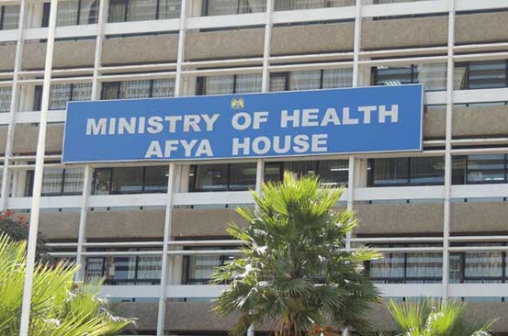
Alex Madaga would be alive today had there been more specialised beds at Kenyatta National Hospital.
Mr Madaga, an accident victim, died in October last year after lying inside an ambulance for 18 hours waiting for admission.
He could not be admitted as there were no vacant specialised beds in the hospital’s intensive care unit.
Madaga is a sad example of the human cost of altered Government spending plans, characterised by supplementary budgets.
In this case, more than Sh55 million had been set aside to buy additional intensive care unit beds. The money would have been enough to buy 55 of the best specialised beds in the market, going by readily available quotations, and more than tripled the hospital’s capacity.
Normally, supplementary budgets are meant to cover unforeseen and unavoidable expenses.
This is only one among tens of cases where funds for critical functions at the Ministry of Health were diverted as more details of the suspected Sh3 billion scam continue to unravel.
“There is a lot of mischief in supplementary budgeting. It is beyond outright deviousness,” said Nicholas Gumbo, the chairman of the Public Accounts Committee (PAC).
Second budget
The Health ministry tabled a second supplementary budget within one year, a few days to the end of the financial year, thus denying MPs any chance to scrutinise the reallocation.
Still in the Health ministry, allocations meant to support patients living with Aids grew five-fold to Sh648 million, a pointer to how ministries could be abusing supplementary budgets.
MPs had approved Sh133 million for the National Aids Control Programme in the national budget unveiled in June 2015, before the massive adjustments were effected in two mini-budgets that came late in the financial year.
“The Executive is now using the supplementary budgets primarily to steal,” claimed John Mbadi, another PAC member.
A loophole that the Executive is utilising to ensure that mini-budgets escape the scrutiny of the National Assembly is introducing wholesale amendments in the last minutes, he added.
He said the Ministry of Health experience was a clear indication that the misuse of supplementary budgets was widespread across other ministries.
“It is my conviction that this is happening in many more ministries and this is theft perpetrated through these revisions in spending plans,” said the Opposition MP who described the reallocation for the purchase of ICU beds as “sad and irresponsible”.
The State referral hospital has only 21 ICU beds and is the only public hospital around Nairobi with the facilities that also serve Mama Lucy Hospital, Pumwani Maternity Hospital and Mbagathi District Hospital among others.
Admittedly, supplementary budgets do not attract much perusal from legislators. In many instances, the requests for additional funds is a formality to regularise an already completed procurement.
Health Principal Secretary Nicholas Muraguri had acknowledged the supplementary budget as a major boost for the delivery of medical services.
“It will support the free maternity programme, address the health needs of people in slums and hard-to-reach areas by establishing clinics and also facilitate the completion of the specialised medical equipment project,” Dr Muraguri said in justifying the reallocation in June.
But in the ensuing months, it became clear that supplementary budgets were an avenue for pilferage after a leaked internal audit revealed the extent of wastage and questionable spending that followed the reallocation.
It is unclear why the ministry approved the reallocation of the funds meant for the bronchoscopic unit and ICU beds, even as dying patients are turned away from KNH owing to limited capacity.
Questioning the spending, PAC members have expressed fears that the revised spending budgets could have been used to execute theft through inflated expenditure. It is through these changes in the spending plans that the suspected fraud may have been executed at the Ministry of Health, where unplanned projects such as the 100 container clinics were procured.
The bulk of the Sh800 million already paid for the container clinics was meant to fund free maternity healthcare, a more critical function that is handled by county governments and referral hospitals, which run as semi-autonomous institutions.
The first batch of the clinics arrived in the country last year but are yet to be deployed, and are still lying at the National Youth Service yard in Mombasa.
A review of the two supplementary budgets approved by the National Assembly in the final months of the year indicate additional disbursements to the programme worth Sh516 million, including the controversial Sh265 million transacted through Co-operative Bank of Kenya.
Additional food
Muraguri explained that an emergency arose in the course of the year that required the procurement of additional food supplements for patients living with HIV. It is however inconceivable how the ministry could not have foreseen the need at the time of the budget-making process, yet HIV is a long-term condition.
The ministry allocated Sh200 million for the development of a hospital in Wajir County last year, before slashing the budget by half. Even then, no project was ever started.
A breakdown of the ministry’s supplementary budgets indicates that the county, which is ranked among the poorest, could be a victim of the ongoing scam where funds for crucial projects are deliberately diverted. Governor Ahmed Abdullahi was shocked that there was such an allocation for his county, much less the subsequent reduction to Sh100 million.
“I honestly do not have a clue what this budget line was for; I am not aware of any project by the ministry,” Mr Abdullahi said when The Standard sought his comments.
The best that the Health ministry did was making minor modifications on existing rooms in the county’s main hospitals to accommodate medical equipment leased from the national government.
“We offered them two or three rooms where they would install the leased equipment,” added the governor who was confident that a project worth so much money in his area of jurisdiction could never have escaped the attention of his office.
No explanations were given for the slashing of Wajir’s budget for the development of buildings.
Other reductions in the supplementary budgets for the ministry include Sh20 million that had been allocated for the expansion of Kapenguria Hospital, another Sh20 million for Kigumu Hospital, Sh30 million for Usenge Dispensary and Sh20 million for Ileho Health Centre.
An additional Sh350 million was granted for contingency needs at the ministry and Sh1.8 billion for the roll-out of Universal Health Coverage – a need that was never envisaged at the start of the financial year.
In his budget speech in June 2016, National Treasury Cabinet Secretary Henry Rotich said his ministry had shelved non-essential spending in the supplementary budgets he brought to the National Assembly.
“These included measures to curb non-priority expenditures and to free resources for more productive purposes as well as expenditures cuts on slow and delayed projects,” Mr Rotich said of the shelved budgets, which would inadvertently include the elimination of the ICU beds.
Othaya Hospital was awarded Sh200 million for the development of buildings in the supplementary budget passed days to the closure of the financial year.
 The Standard Group Plc is a multi-media organization with investments in media platforms spanning newspaper print
operations, television, radio broadcasting, digital and online services. The Standard Group is recognized as a
leading multi-media house in Kenya with a key influence in matters of national and international interest.
The Standard Group Plc is a multi-media organization with investments in media platforms spanning newspaper print
operations, television, radio broadcasting, digital and online services. The Standard Group is recognized as a
leading multi-media house in Kenya with a key influence in matters of national and international interest.











